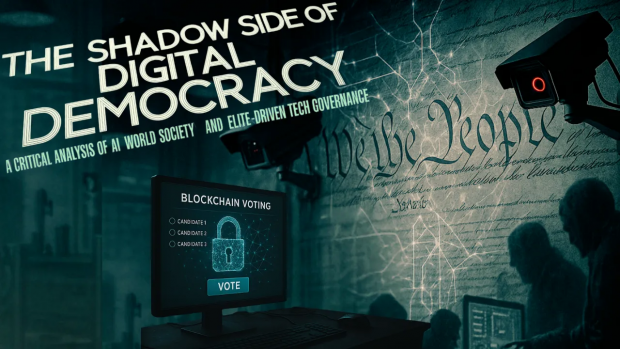
Breaking News
 Wise words (Elon Musk responding to Ron Paul's tweet on the Big Beautiful Bill)
Wise words (Elon Musk responding to Ron Paul's tweet on the Big Beautiful Bill)
 People Are Being Involuntarily Committed, Jailed After Spiraling Into "ChatGPT Psychosis"
People Are Being Involuntarily Committed, Jailed After Spiraling Into "ChatGPT Psychosis"
 Dr. Lee Merritt: What You Need to Know About Parasites and Biowarfare
Dr. Lee Merritt: What You Need to Know About Parasites and Biowarfare
 How We Manage a Garden With 11 Kids (2025 Garden Tour)
How We Manage a Garden With 11 Kids (2025 Garden Tour)
Top Tech News
 xAI Grok 3.5 Renamed Grok 4 and Has Specialized Coding Model
xAI Grok 3.5 Renamed Grok 4 and Has Specialized Coding Model
 AI goes full HAL: Blackmail, espionage, and murder to avoid shutdown
AI goes full HAL: Blackmail, espionage, and murder to avoid shutdown
 BREAKING UPDATE Neuralink and Optimus
BREAKING UPDATE Neuralink and Optimus
 1900 Scientists Say 'Climate Change Not Caused By CO2' – The Real Environment Movement...
1900 Scientists Say 'Climate Change Not Caused By CO2' – The Real Environment Movement...
 New molecule could create stamp-sized drives with 100x more storage
New molecule could create stamp-sized drives with 100x more storage
 DARPA fast tracks flight tests for new military drones
DARPA fast tracks flight tests for new military drones
 ChatGPT May Be Eroding Critical Thinking Skills, According to a New MIT Study
ChatGPT May Be Eroding Critical Thinking Skills, According to a New MIT Study
 How China Won the Thorium Nuclear Energy Race
How China Won the Thorium Nuclear Energy Race
 Sunlight-Powered Catalyst Supercharges Green Hydrogen Production by 800%
Sunlight-Powered Catalyst Supercharges Green Hydrogen Production by 800%
The Shadow Side of Digital Democracy:

TLDR:
The Bottom Line: What's marketed as "digital democracy" is actually a sophisticated power grab by tech elites, transforming genuine civic participation into managed participation theater while threatening cognitive liberty itself.
The Elite Capture Machine
The AI World Society (AIWS), led by former Massachusetts Governor Michael Dukakis and Vietnamese entrepreneur Nguyen Anh Tuan, exemplifies how "digital democracy" initiatives concentrate power among academic and political elites. Their latest venture—blockchain-certified "Esteemed Digital Assets"—literally tokenizes political legacies, creating artificial scarcity around historical narratives while an elite board of MIT and Harvard affiliates controls the curation.
Even more concerning is their "Music for Humanity" initiative, which uses "AI-amplified music" for what can only be described as emotional engineering—bearing striking similarities to the HeartMath Global Coherence Initiative's attempts at technologically-mediated consciousness manipulation.
Taiwan's "Success Story" Exposed
Taiwan's vTaiwan platform, celebrated globally as a digital democracy triumph, reveals the fundamental flaws in these systems when examined closely. The brutal reality: only 0.04% of Taiwan's population actually engaged with the platform, and legislators admitted they don't take it seriously because the government isn't required to adopt recommendations.

 He 3D Printed a Whole House
He 3D Printed a Whole House

